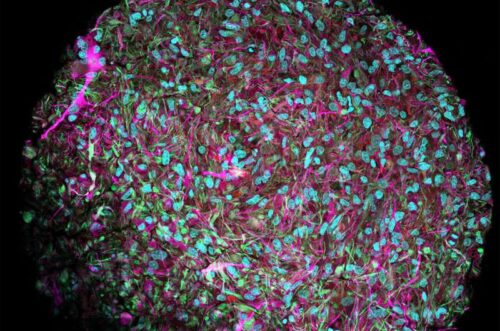Researchers at John Hopkins University have developed a way to create biocomputers that can enable superior computers.

In our journey of seeking intelligence and even embedding it into a variety of objects, we have been introduced to machines that have barely reached a fraction of what the human brain is capable of. The human brain can be trained to run any program that one may desire. It possesses a space to store tons of data and solve any mathematical, analytical or logical problem. So why aren’t we working on developing the brain itself as a supercomputer?
A similar question came across researchers at the Johns Hopkins University who believe a “biocomputer” powered by human brain cells could be developed within our lifetime to exponentially expand the capabilities of modern computing and create novel fields of study.
“Computing and artificial intelligence have been driving the technology revolution but they are reaching a ceiling, biocomputing is an enormous effort of compacting computational power and increasing its efficiency to push past our current technological limits,” said Thomas Hartung, a professor of environmental health sciences at the Johns Hopkins Bloomberg School of Public Health and Whiting School of Engineering.
Hartung began to grow and assemble brain cells into functional organoids in 2012 using cells from human skin samples reprogrammed into an embryonic stem cell-like state. Each organoid contains about 50,000 cells, about the size of a fruit fly’s nervous system. He now envisions building a futuristic computer with such brain organoids. But at current pace it would take decades before organoid intelligence can power a system as smart as a mouse.
This problem can be tackled by scaling up production of brain organoids and training them with artificial intelligence. This could enable biocomputers that support superior computing speed, processing power, data efficiency, and storage capabilities. Researchers believe that the organoid intelligence could also revolutionize drug testing research for neurodevelopmental disorders and neurodegeneration.








